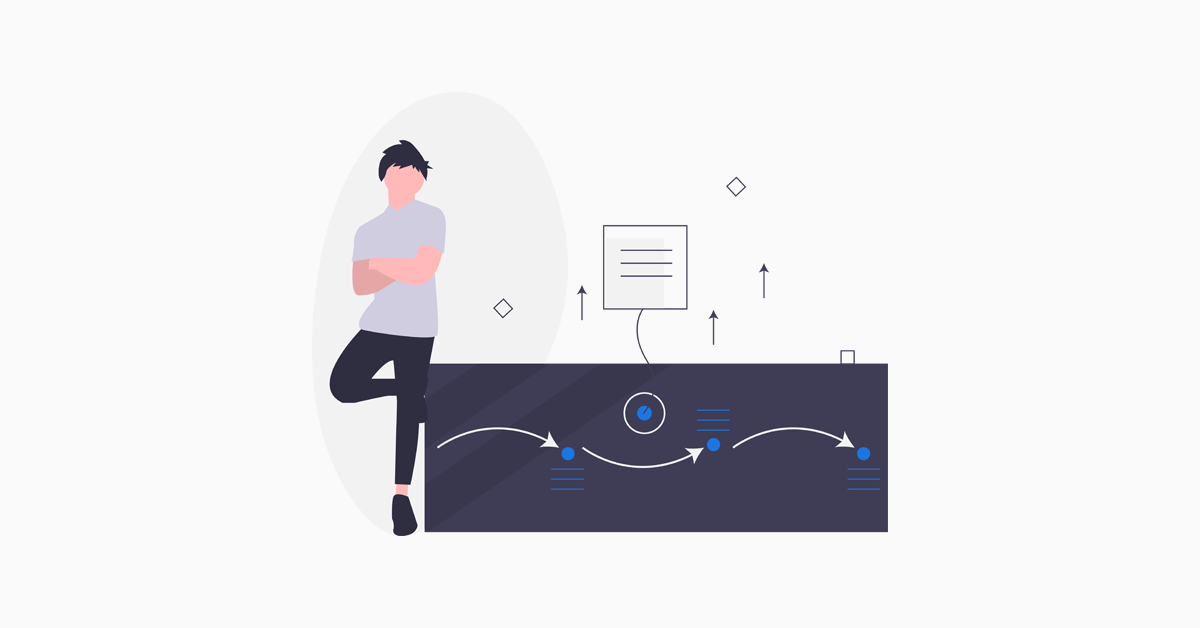26 Expert Bloggers Share Their Favorite Blog Monetization Strategies
Building a successful blog involves a lot of different things like choosing the right topic, writing posts that get people’s attention, building traffic and subscribers, and converting that traffic.
In order to make money with your blog you’ll need to have a plan. Simply getting traffic is not enough.
I recently reached out to a large group of blogging experts to get their feedback on the topic of blog monetization, and in this post you get all of their valuable advice in one place. The question asked was:
What’s your favorite way to monetize a blog, and why?
And here are the answers from each blogger on the panel.
Note: If you need some help deciding which monetization strategy to choose, check out our definitive guide to choosing a blog monetization strategy.
Yaro Starak of Entrepreneurs Journey

When I first started blogging my favourite way to make money was recursive affiliate income. This means selling other people’s subscription products, since I could sign someone up for a program or service and get paid month after month as they continued to pay their bill.
Today, however, I prefer to sell my own products because you always sell more of something you created yourself, plus there is wonderful sense of fulfilment when you sell something you created. It’s the dream of an artist or writer to make a living from their own craft, which is what I get to do today as a blogger, and recommend all other professional bloggers focus on too.
Jon Morrow of SmartBlogger

According to our research, the bloggers who reach six figures in revenue the fastest begin with some type of coaching or consulting service. Unlike creating courses or writing an e-book, there’s no preparation. You can decide to start selling coaching services and have your first client by this evening. The average transaction size is also much larger.
Even a beginning blogger can usually get $99 an hour for a telephone coaching and sometimes a great deal more. Lastly, it’s a great learning experience. After talking on the phone with a few dozen clients, you’ll have a much better idea of what products and services your audience needs, so you’ll know what to do next (instead of guessing).
Adam Connell of Blogging Wizard

There are two monetization tactics that I’m very fond of for different reasons:
Affiliate marketing – It’s easy to do and in most niches it can be very profitable. It’s also scalable along with your traffic. And there are plenty of affiliate networks you can join. On the downside this can be fairly unpredictable.
Products/services – Selling products or services can work really well, if you set things up just right it’s relatively straight forward to scale (products more so than services) and you can then leave things to run almost on auto pilot if you have a smart sales funnel setup.
Never completely leave things to run unattended, you should always look to monitor and optimize your sales funnel. Times change and so do buyer habits. Besides, there is always a way to squeeze better conversion rates out of your funnel in most cases.
However you choose to monetize a blog, look to diversify your income and minimize risk wherever possible.
Neil Patel of NeilPatel.com

Ebooks. If you can create premium content for your readers, they will be highly likely to buy it. Plus you’ll make more money than if you just shoved ads on your blog.
Ryan Biddulph of Blogging from Paradise

I don’t have a favorite way to monetize my blog per se but I do love writing eBooks. I feel eBooks are the ultimate authority builders, trust builders, and branding tools for building an income generating blog.
Now I just got into the eBook game 2 months ago, and I’ve already released my 2nd eBook recently. So I’m new to the game but it’s definitely my favorite product/service to create.
In truth though my favorite way to monetize my blog is to create inspired, in-depth content. I relish publishing helpful, long, inspired blog posts to help my audience over at Blogging from Paradise because hey; your content IS the most important blog monetizing tool, or strategy. The channels vary, but you proving that you know your stuff, through the free content you share, is what puts money in your pocket.
So make creating free, inspired content, your favorite thing to do, and over deliver, and you’ll monetize your blog intelligently through any channel.
Ramsay Taplin (previously of Blog Tyrant)

It’s all about the funnel!
First I figure out what product I can create or affiliate I can promote and then I go about finding traffic. Your blog is just a means to get traffic – I think people really miss that point. You don’t just post blindly – you post so you can tap into new traffic sources and constantly grow your reach. There’s no point in having 10,000 visitors every day if they are interested in your end-product.
My favorite thing (because it’s long-term safe) is to grow a mailing list around a tightly targeted niche by buying traffic through ad placements on relevant sites, or guest posting on relevant topics. My aim is to make my guest posts on authoritative sites rank on Google for at least 5 years so I get a constant stream of referrals.
For example, I’ll write guest posts about topics I mention in my massive guide on how to start a blog which then introduces people to some affiliate products in a useful and honest way.
Pauline Cabrera

Affiliate marketing. I love how I can help other people and earn at the same time!
Plus they are one of the highest paying ads.
I earn commission from reviewing products, creating tutorials, and recommending products I use.
I used to dislike this method because I wasn’t sure how to do it properly. I thought it was super complicated…until I watched how the pros do it, and figured how to actually work it.
It may seem hard at first but once you learn how it works, it’s a lot fun and you’ll be amazed at how simple it is. Sure, it may take a lot of work, but it’s worth it.
TIP: Choose your niche, provide value, find where most of your target audience hangs out, and promote! Keep reading tips from the pros. AND don’t forget to optimize for the search engines.
David Risley of Blog Marketing Academy

Doing what any other business does, which is provide products or services which solve a problem for your target audience. It is what all businesses do. I am not a fan of the word “monetization” because it suggests that a blog is somehow different. One doesn’t open up a storefront and then “monetize” it. 🙂
Of course, this speaks right to whether you see what you’re doing as a business or a journal or a media source. But, the way I look at it, a blog is one of the most powerful marketing vehicles there is. And a business is what makes money. So, make a real business and see the blog for what it is… a marketing vehicle.
Henneke Duistermaat of Enchanting Marketing

When starting out with a new blog, the quickest way to earn a living is become a coach or consultant or offer a service like web design or copywriting. That’s what I did when I started my blog from scratch. I found copywriting clients via guest posting, which also allowed me to build an email list. Once you have a sizeable email list the options for monetizing your blog multiply – sell your own books or ecourses, affiliate marketing or advertising.
Ashley Faulkes of Mad Lemmings

The simplest way to monetize a blog is to add relevant affiliate links to products in your niche. But let’s ignore that choice, as I am sure it is a common one.
Instead what I would say is this: if you are blogging to earn money alone, then you might be in for some disappointment. It could take years to make a living (ie. you need to be big). So instead, I recommend adding your own products and services to your blog. What kinds? That depends on what you are blogging about and what you are good at. But there is always something you know, that others are willing to pay for, and you need to find out from your audience what that is (ask them in a post, email, survey). But the main point is this – if you honestly want a business out of your blog, plan for it from the beginning. A blog supplements businesses but rarely creates them.
Ron Sela of RonSela.com

Bloggers usually have varied ways of monetizing their blogs. Two of the most common are by creating products or service lines which they promote. The other is by promoting affiliate products. I favor the option of getting your product to promote, and there are plenty of reasons why this is so.
For one, promoting your own product usually increases your net earning potentials. This is because bloggers have a chance of growing their own product and getting profits along the way. They also tend to establish themselves as experts in their niche.
Bloggers who promote affiliate products are usually dependent on their marketability. This also means that they are not likely to receive all the long term benefits of their promotional work. Bloggers who promote their own products also enjoy long-term SEO benefits.
Promoting products which you can call your own is usually easier. Recognition is also a benefit since producing high quality product puts its creator in the spotlight.
Despite these advantages, creating your own line of products is not easy, especially for new bloggers. This is because it requires resources that new bloggers may not be willing to invest.
Sue Anne Dunlevie of Successful Blogging

I help bloggers succeed online by showing them how to use their blog to earn a living. So, monetization is very important to me!
I teach my blogger clients to monetize their blog in several ways, but my favorite is for each blogger to have their own product or service. And the key to selling that product, craft or service? Preselling. Which is simply the buildup of anticipation for what you are going to sell to your readers.
This is where many bloggers fall short. They just stick up a sales page or send a sales email and wonder why no one buys.
Preselling is crucial. To create that anticipation for the sale, you need to have a clear, focused plan where absolutely everything you write – blog posts, emails, guest posts and social media – all lead eventually to a making an offer.
Stuart Walker of Niche Hacks

Affiliate marketing all the way for me.
Once a piece of content is up it’s there forever and no further work needed on it.
So it generates passive income on auto-pilot from there on it.
Though I’ve also just added 5 info products which don’t really require any work once online either.
These have already generated a few hundred extra dollars a month and took me no longer to create than a blog post.
All the payments and stuff is handled through the marketplace I use so it’s passive once up.
I’ve also added in some services which require a little work on my part but nothing too much.
And just recently added in AfterOffers.com which is a clever new way to make money when people sign up to your list by offering them to join the lists of other bloggers at the same time.
At the time of writing I’ve had this on the blog for less than 48hrs and it’s generated $34 for me. So if it remains steadily earning like this it’s an extra $500 a month in passive income.
Matthew Barby of MatthewBarby.com

My favourite way to monetize a blog is through online purchases. For example, up-selling a book or some form of relevant product to your blog audience. The reason for this is because you will spend a huge amount of time building trust with your readers. Once you build trust, you’re in a position to add value to their experience. In the example of a book, you can generate revenue from sales but also boost your profile in the process. Not only that but it can be a great inbound marketing tool to acquire new customers with.
Kevin Muldoon of KevinMuldoon.com

Mmmm. It is hard to choose just one.
My three main monetization methods are:
1) Banner advertising, 2) Affiliate marketing (via reviews, guides, links in posts etc), and 3) Direct product selling
Selling products directly has the potential to be the most profitable if you have a good product to market. Though, historically, the blogs I have ran have always had most of their income generated through affiliate marketing. So if I have to pick one, I would say that is my favorite, Though I do like the income consistency that banner advertising can bring every month too.
Kevin Duncan of Be A Better Blogger

It’s going to sound frustratingly unhelpful, but my answer is “it depends on when you’re asking me.” I’ll explain.
Right now, with Be A Better Blogger barely four months old, selling my services is by far the most lucrative way for me to monetize my blog. Even as I’m waiting for my traffic and mailing list to grow to higher levels, I can go ahead and use my years of experience as a web developer and blogger to earn income as a WordPress developer, content writer, and blogging coach.
However, I’m not a fan of the time commitment. Selling your services is the one monetary strategy where you’re incapable of relaxing. Want to take a break and concentrate on blogging? Fine, but you’re not getting paid. Want to take your wife on a cruise vacation? Bon voyage, but you’re not making any money that week.
As Be A Better Blogger continues to gain in popularity my attention will shift away from services, and towards affiliate marketing and selling digital products. The former is truly passive; the latter requires a lot of work up front, but only minimal work later.
Affiliates will allow me to earn income without the time commitment of creating my own product. It has its cons, but as a passive form of income it’s difficult to beat. Creating my own digital products (eBooks, plugins) will require a considerable time commitment initially, but its income potential (not to mention its ability to build my reputation as an expert) is significant.
Of course, ask me a year from now and my answer could be totally different!
Greg Narayan of Dear Blogger

Lately I’ve been into AdSense because of their new iPhone app. It’s fun to put ads on random pages then see if they can earn you an extra $100 on the month, and track it all on the go.
Erik Emanuelli of NoPassiveIncome

From my experience so far, I found out that the sale of banners is the best method to monetize my sites.
I use BSA for my main blogs and OIO Publisher plugin for the other ones. It’s not easy to be accepted at BSA, but it’s definitely worth the efforts.
Once set up, it works in automatically. The only thing you need to do is confirm the request from the advertiser and you have plenty of control over it.
I can also mention that other ways to monetize my sites are sponsored posts and the sale of my ebooks.
Adrienne Smith

I don’t concentrate on monetizing my blog because I use it as a tool to connect with others.
My goal is to build up those relationships with them so that down the road they will want what I offer through the products I promote, my consulting or my own product that I will be releasing soon. I’m more about the connections.
Daniel Scocco

AdSense, and that is because it’s the easiest and least time consuming monetization method. You just need to set it and forget it. On top of that AdSense also tends to have the best CPM and fill rates on the market, so it works pretty well. Obviously AdSense might not be the most profitable method, but given we are talking about blogs it would still be my choice. If we were talking about websites in general, then I would say that selling one own’s products and services is the best method.
Rajesh Namase of TechLila

Affiliate Marketing is my favourite way to monetize my blogs because it can generate regular stream of income. Also we can consider it as a long term business.
Catherine Holt

My favourite strategy for monetization depends on the blog. This really comes down to what I feel my readers want and what is appropriate for the niche.
For example, my favourite way of monetizing my blog is with an affiliate product. The entire site is based around one large product and it will stay that way.
Yes, I do have some smaller affiliate links such as Hootsuite, but it is not a site where I will be having a lot of advertising and I currently do not have Adsense.
My reasoning?
Well the site was set up for bloggers, who want to learn how to blog. It is for those that may already be blogging and want to know how to improve, or it is for those who want to simply get started. The product that I have on offer is a ‘learn how to blog’ program. It is an intensive 12 module program that includes an enormous amount of information. Everything that you could possible need to know about blogging and turning it into a business is included here. It also has live chat support, website design and set up, hosting, email marketing etc. Everything is available in the one package.
I therefore set up my site around this product, to ensure that my readers are the target market for the product.
I do however believe in having trust in any affiliate product that you sell, and I don’t think that bloggers should place affiliate links on their site (just for the money). That is just my personal opinion on the matter. I have personally used the program that I am an affiliate for, and therefore I have 100% confidence in the product. I can answer people’s questions because I have first hand experience of the product’s use.
For my site over at Smart Party Planning, my monetizing strategy is different. I do not feel that this is the kind of niche that is relevant for any large affiliate products, so I have taken a different route, namely my own digital products.
On this site I have an Etsy store where I sell my party printables. For example, party invitations, cupcake toppers, banners etc. Believe it or not, beer labels are one of my biggest sellers!
The great thing about digital products is that you make them once and then you just keep on selling the file! I do take custom orders from the shop, but I try to keep this to a minimum because it means I have to create a new file which takes precious time! I always charge a custom order fee, but it’s still not as financially viable as just selling the existing PDF file.
People love the instant download of a printable file, and I find this works really well with my readers. They come to my site, see an idea that they love and then wham….in 5 minutes they can have a party set right in their email inbox!
Plus, designing and party creating is a real passion for me, so I get a huge buzz out of not only designing the printables, but also when I see other people getting pleasure from them.
I do also use some affiliate products from Amazon, but as these party products are relatively cheap so it’s not a huge money spinner but the time I get my commission. I generally have the ideas there to help my readers out and to have something available at their finger tips rather than use it as a money generator.
Smart Party Planning is also a site that I use Google Adsense for and this works quite well. Of course Google Adsense is only going to earn you a nice steady income if you have the traffic levels to go with it, but as this site is a couple of years old with a PR2 rating, it does earn a nice steady income.
At the end of the day, I don’t think there is a right or a wrong way to monetize a blog. I think it depends on the niche that you are in, the direction you want to take for your blog and what your readers will benefit from.
Stacey Corrin

I use a mixture of affiliate marketing and selling my own services to monetize my blog. Since I have a background in freelance writing and content marketing, it made sense to offer these as services to my readers. It’s a great thing to look into doing if you have a blog, as your posts will stand testament to your ability as a writer.
With the affiliate marketing side of my monetization plan, I promote products that I use or have used myself. This I believe adds more authenticity and comes across in my product reviews.
Steven J. Wilson

There are so many ways bloggers go about monetizing their blogs. I did a lot of reading and making some decisions on the best way I can monetize my blog. Keeping my focus on growing my blog to the point where I create additional options for myself.
The challenge was, how do I accomplish this with a newer blog, all while blogging part-time. I continued with a strong focus on not hindering my growth or using questionable methods that set my blog back by a Google update.
I thought about it for a while one day. I realized until my blog grew to a certain point, the best option would be to leverage what I already do on the side.
I thought about some common questions I received from a couple small businesses I was helping with their online presence.
I realized that there were plenty of small businesses and organizations out there that want more and need more from their online presence. With their focus being on growing their business, this leave them unwilling, unsure or both!
I started my blog answering some of the questions they were asking knowing that others will have the same questions.
So, I started referring potential clients to post that relate to their need in my pitches.
I noticed that this one little step was beneficial in closing contracts. Simply having a blog, something that they can see for themselves makes for much better results.
At this point in my blogging journey this is my favorite way to earn extra income from my blog. It has pulled in two long-term contracts without much effort on my part in finding them.
This strategy should definitely be considered when exploring ideas on making money from our blogs. Monetizing your blog using a method like Adwords, may only generate pennies for you in the beginning.
If we also think about creating a blog and focus on using it as a proof of concept or a proof of principle. The income you can generate early on is far better than methods that are more beneficial to blogs that get tons of traffic.
Andrew M. Warner

To be completely honest with you, I haven’t actually monetized my blog as of yet. Mainly because I’m primarily focused on building connections, engaging, etc. But WHEN I do start monetizing my blog (very soon), I’ll be choosing Information Products as my main method.
And the reason I’m choosing Information Products is because while Affiliate Marketing is good and offers you certain freedoms (i.e. Not having to create the product, not worrying about delivery to the customer, other behind the scenes issues) I just love creating my own Information Products because (1) you actually own it and (2) you actually control it.
And to add to that point, you don’t have to worry about the product owner shutting down the product or have to stress over getting paid on time because since you own the product, you control everything.
Mi Muba of Be A Money Blogger

Apart from creating your own product and selling it at your blog, rest of the ways have already been massively optimized.
That is why there is stiff competition in PPC, CPA, banner ads, product reviews and even affiliate sales.
The only way where both production and marketing is in your hand is creating your own product.
If we look at ten blogs on blogging half of them have an affiliate ad at their side bar with an impression as if it is a banner ad. So this is the level of competition in all ways of monetization where you promote or sell other’s products.
- You can enhance the quality of product by putting several add-ons in it.
- You can update the product as many times as the situation demands
- You can innovate the product to make it more competitive if a few products of same type arrive in the market
- You can introduce the follow-up of your product to grab the rest of the market potential
- You know the features of product better if you have produced it; so the way you can highlight its features no one can do like this.
That is why for me the best way to monetize a blog is to create your own product and sell it the way you want.
Devesh Sharma of WPKube

If I had to choose one, it would be affiliate marketing.
Monetizing a blog via affiliate marketing is fairly easy and with right amount of traffic you can generate hundreds of thousands of dollars. I have had a great success with it.
The key here is to promote products that you have personally tested and are happy with. You cannot make money, by promoting products that gives you huge commission but doesn’t deliver quality content to customers.
Wrapping it up
There are plenty of ideas for you to digest in this post. The best approach is to pick a single strategy and focus on making that work – don’t jump between various strategies.
If one strategy doesn’t work, it’s critical to understand why it didn’t work rather than just giving up and proclaiming that it’s a waste of time. A single detail may have been missed or it may need more time to work.
Regardless, I’ve picked out some other articles you may find useful:

